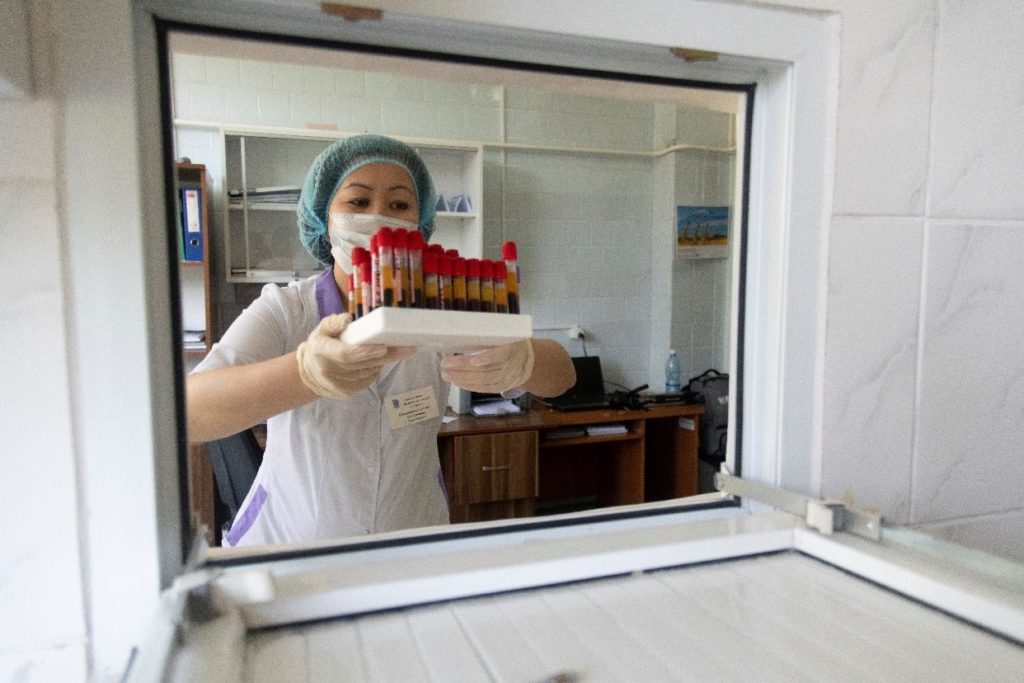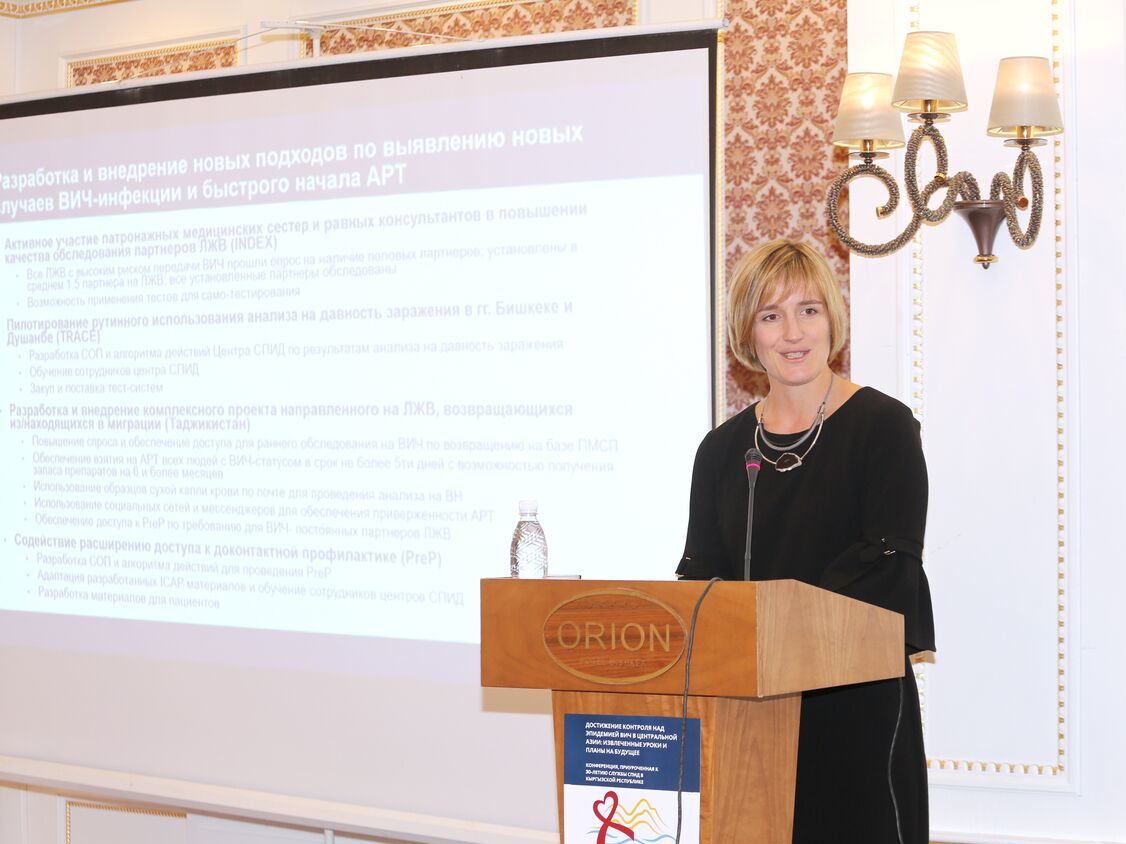Thirty years ago, the introduction of HIV services in Kyrgyzstan (Kyrgyz Republic) ushered in the provision of new care and treatment options for people living with HIV. To take stock of progress made and to continue addressing gaps in the response to HIV, ICAP in the Kyrgyz Republic organized a Central Asia regional conference—bringing together ICAP in Kazakhstan and ICAP in Tajikistan—to commemorate the 30th Anniversary of the introduction of these critical, lifesaving services.
The conference, titled, “Achieving HIV epidemic control in Central Asia: lessons learned and ways forward” was supported by the President’s Emergency Plan for AIDS Relief (PEPFAR) through the U.S. Centers for Disease Control and Prevention (CDC) and the Ministry of Health of the Kyrgyz Republic, and convened more than 230 participants in the capital, Bishkek.
Since 2010, AIDS-related deaths in the Kyrgyz Republic have decreased by 9%, yet new infections have increased by 21% (UNAIDS). To address this rise, ICAP has been providing technical assistance and implementation support to the Ministry of Health of the Kyrgyz Republic, and working with regional health facilities to pilot integrated HIV, tuberculosis, and medication-assisted therapy services for key populations—with a specific focus on people who inject drugs—as well as piloting innovative strategies for outreach and nurse-supported adherence and counseling at the community level.

Blood samples are run through a series of tests at Bishkek City AIDS Center, where ICAP’s work supports testing, treatment, and follow-up for key populations.
Participants at the 30th anniversary conference, including representatives of national HIV programs and donor organizations, engaged in panel discussions on groundbreaking regional implementation initiatives, driving forward the conversation on how the Central Asia Republic region can better serve key populations and reach more people living with HIV with improved treatment and care.
Discussions covered a wide range of topics, including HIV control in the region, the impact of donor assistance on services, the scale-up of Dolutegravir-based regimens, the rollout of Pre-Exposure Prophylaxis (PrEP) in the Central Asia region, and more.
On the final day of the conference, the team from ICAP in Kazakhstan received a letter of appreciation signed by the Minister of Health of the Republic of Kazakhstan acknowledging ICAP’s significant contribution to HIV epidemic control in the country. Since 2011, ICAP has been providing technical assistance to the national HIV control efforts in Kazakhstan. ICAP’s initial activities focused on improving national monitoring and evaluation systems, strengthening clinical protocols, and conducting national level capacity-building workshops and seminars. Additionally, in 2014, the ICAP team in Kazakhstan expanded its support to include improving the quality of HIV testing in treatment services in two PEPFAR priority areas, Eastern Kazakhstan and Pavlodar Oblasts.
“A lot has been achieved, and we are very proud of our direct involvement and mentoring support to facilities,” said ICAP in Central Asia’s Regional Director, Anna Deryabina, MD, DrPH, MScIH, “with our daily engagement, facilitates were able to build stronger clinical teams that will continue providing high-quality clinical services and truly care for their patients beyond ICAP-supported projects. This letter of appreciation initiated by the Kazakh Scientific Center for Dermatology and Infectious Diseases and signed by the Minster of Health is an important recognition of ICAP’s contributions and a great motivation to continue our work in Kazakhstan and beyond.”
ICAP’s work in the Kyrgyz Republic and the broader Central Asia region reflects the importance of robust systems for testing, treatment, and follow-up. Through strengthening and improving monitoring systems and providing ongoing technical assistance, ICAP hopes to continue to serve key populations and provide better access to essential information, ensuring that no one is left behind and that these three countries in Central Asia stay on track to achieve epidemic control.

ICAP’s team in Kazakhstan received a certificate of appreciation from the Minister of Health of Kazakhstan for their contributions toward controlling the HIV epidemic.








